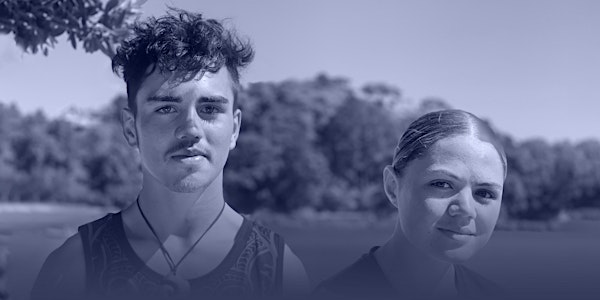
WEBINAR: Rangatahi Maori Wellbeing
Harnessing the Spark of Life: Maximising whanau contributors to rangatahi wellbeing
Date and time
Location
Online
About this event
Presenters: Terryann Clark, Jade LeGrice, Logan Hamley, Larissa Renfrew, Hineatua Parkinson, Sierra Tane, Nicola Harrison & Cinnamon Lindsay Latimer
What is Harnessing the Spark of Life?
This study has helped us understand more about what supports rangatahi Maori to thrive. We intuitively knew that whanaungatanga is important for wellbeing, yet there had been little known about how whanaungatanga operates in the busy modern lives of rangatahi. We also wanted to know what families, health and social service providers can do to help support whanaungatanga and ensure that rangatahi are connected, healthy and well.
How did we do this?
This was a three-part study. First, 51 rangatahi and their whānau took part in a photo elicitation project. Young people were given an internet tablet and asked to take photos of things, people, places that made them feel connected, supported and well. These rangatahi and their whānau then engaged in storytelling about these photos with our researchers. We have gleaned such wonderful insights into the lives of rangatahi and what made them feel loved, strong, and connected (Methods paper in preparation).
The second part of the study involved taking these learnings and putting questions into the Youth19 Rangatahi Smart Survey, specifically about whanaungatanga. We undertook the representative survey of 7,500 young people from Waikato, Tamaki Makaurau and Taitokerau (link to Youth19 intro and methods report), with 1,528 (20%) of those who did the survey being rangatahi Maori.
The third and final part of the study was to develop resources for rangatahi and their whānau. We also have published some papers and have others in development.
Harnessing the Spark of Life: What did we find?
We found that many whānau were doing a great job engaging in whanaungatanga, despite many challenges. Whanaungatanga happened in the small everyday interactions like taking time to have a cup of tea or in the car on the way to a sports game. It happened when whānau gathered for special events, kapa haka competitions or waka ama. It also happened when they learned about whakapapa (genealogy), their tupuna (ancestors) and nga taiao (the environment). We have highlighted a range of important components of whanaungatanga in our publications and resources. From the Youth19 rangatahi smart survey, we found that whanaungatanga was protective for a range of hauora outcomes, including improved mental health.
Join us for this FREE webinar, where members of our roopu showcase some of these findings, resources and insights.
For more info: www.youth19.ac.nz or Youth19@auckland.ac.nz or t.clark@auckland.ac.nz